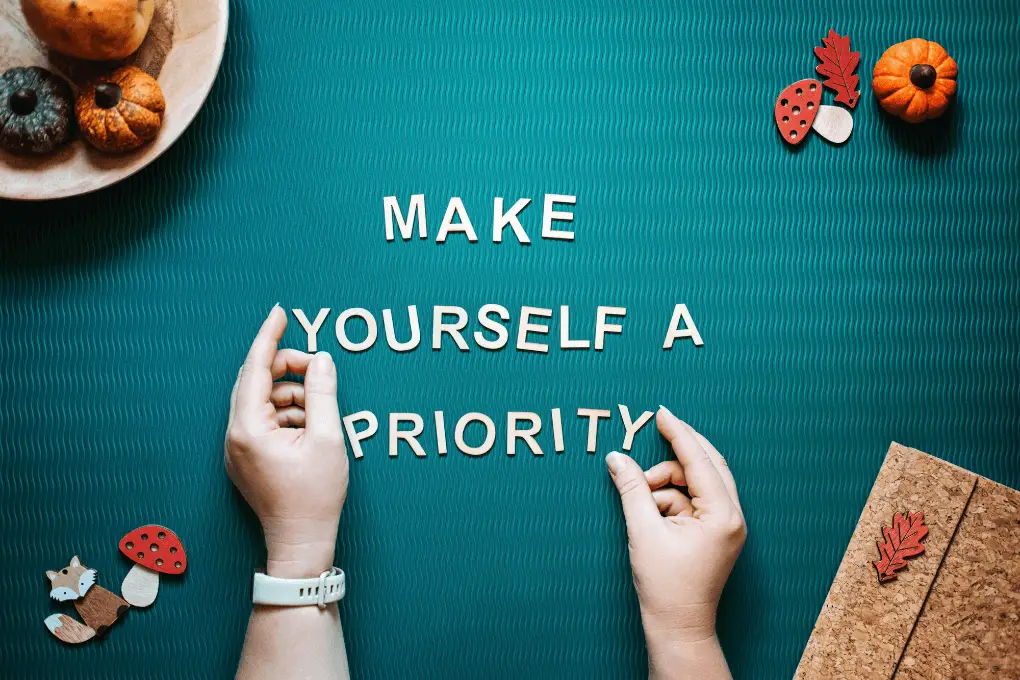Do you ever feel like you’re constantly being judged by those around you? It can be a frustrating and isolating experience, but the truth is that judgemental people are an inevitable part of life. However, just because they exist doesn’t mean you have to let their negativity bring you down.
Learning how to deal with judgemental people is an important skill that can help you maintain your own self-confidence and sense of worth. In this article, we’ll explore some practical tips for dealing with judgemental people in a way that minimizes their impact on your life.
These strategies will equip you with the tools you need to navigate tricky social situations with ease. So take a deep breath, put on your game face, and get ready to learn how to handle even the most judgmental of individuals.
Table of Contents
Assess the Situation

Before jumping to conclusions about how to deal with judgmental people, it’s important to take a step back and assess the situation. It can be easy to get caught up in our emotions when dealing with difficult people, but taking a moment to evaluate things can help us approach the situation more calmly and effectively.
Start by considering what might be motivating the judgmental person’s behavior. Are they feeling insecure or threatened in some way? Are they trying to assert their authority or control over others? Understanding their perspective can help you respond in a way that diffuses tension rather than escalating it.
Next, think about your own communication style. Are you coming across as defensive or dismissive? Are there ways you could adjust your tone or body language that might make the conversation go more smoothly? By being mindful of how we’re presenting ourselves, we can often improve difficult interactions with others.
When faced with judgmental people, it’s important not to let their behavior get under our skin. Taking a deep breath and maintaining our composure can help keep the conversation on track and prevent things from spiraling out of control.
Remember that everyone has different perspectives and experiences, and sometimes disagreements are simply a part of life. By staying calm and focused on finding common ground, we’re more likely to reach a positive resolution.
Take a Deep Breath

Take a moment to inhale deeply and let go of any tension in your body. Dealing with judgmental people can be challenging, and it’s easy to get caught up in emotional responses. However, taking a deep breath can help you stay calm and composed when faced with difficult people.
It’s important to remember that judgmental people often have their own insecurities or issues that they’re projecting onto others. By staying patient and empathetic towards them, you may be able to diffuse the situation before it escalates.
It’s also helpful to remind yourself that their opinions don’t define who you are as a person. Avoiding defensive reactions is key when dealing with judgmental people. Responding defensively can often escalate the situation and make matters worse.
Instead, try responding thoughtfully and calmly to their comments or criticisms. Remember, you don’t have to justify your actions or beliefs to anyone else but yourself.
Avoid Defensive Reactions
To effectively communicate with judgmental people, it’s essential to avoid getting defensive and instead respond thoughtfully and calmly when faced with criticism or differing opinions. When we feel attacked or criticized, our natural response is often to become defensive. However, this can escalate the situation and make it difficult to have a productive conversation.
Instead, take a deep breath and remind yourself that you don’t need to prove anything to anyone. It’s important to remember that everyone has different experiences and perspectives that shape their beliefs and values. Just because someone disagrees with us doesn’t mean they’re attacking us personally. Avoid taking things too personally or making assumptions about the other person’s intentions.
Listen actively to what they’re saying without interrupting or jumping to conclusions. If you find yourself struggling with defensive reactions, try practicing active listening techniques. This involves paraphrasing what the other person is saying in your own words and asking clarifying questions if needed. This shows that you’re attentive and genuinely interested in understanding their perspective.
By avoiding defensive reactions and actively listening, you can create a more respectful dialogue with judgmental people and potentially even learn something new from them. As you continue learning how to deal with judgmental people, it’s important to set boundaries for yourself as well. Without setting boundaries, it can be easy for conversations to turn into personal attacks or become emotionally draining.
In the next section, we’ll discuss strategies for setting boundaries while still remaining open-minded in communication with others.
Set Boundaries

It’s important not to let their negative comments get under your skin. By setting boundaries, you can prevent them from affecting your mental health.
One way to set boundaries is by clearly stating what you will and won’t tolerate in a conversation. For example, if someone makes derogatory remarks about a particular group of people, let them know that such comments are unacceptable and that you won’t engage in that kind of discussion. By doing so, you assert yourself and show the other person that there are limits to what they can say around you.
Another strategy for setting boundaries is by taking breaks when necessary. If a conversation becomes too emotionally charged or overwhelming, step away from it for a few minutes until you feel calmer. This gives you time to process your feelings without reacting impulsively or defensively. Remember: protecting your emotional well-being is just as important as participating in the conversation itself.
By setting clear boundaries with judgmental people, you create a safer space for yourself where negativity has less power over your well-being.
In the next section, we’ll explore how reframing the conversation can change its tone and direction for the better.
Reframe the Conversation
You can shift the direction of a conversation and create a more positive atmosphere by reframing the focus on constructive dialogue when dealing with judgmental people. It’s natural to feel defensive when someone is criticizing or judging you, but it’s important to remember that their negativity stems from their own insecurities and issues.
When you reframe the conversation, you take control of the situation and steer it towards a more productive outcome. One way to reframe the conversation is to acknowledge what the person is saying and then redirect it towards something positive. For example, if someone criticizes your work performance, instead of getting defensive, try saying something like “I appreciate your feedback. Let’s work together to come up with some solutions so I can improve.” By doing this, you’re acknowledging their concerns while also steering the conversation towards finding a solution.
It’s important to remember that reframing conversations takes practice and patience. You may not always get it right the first time around, but keep trying. Over time, you’ll develop better communication skills that will help you navigate negative situations with ease.
The next step in dealing with judgmental people is to establish empathy for them – understanding where they are coming from can go a long way in improving communication between both parties.
Establish Empathy

Put yourself in their shoes and try to understand why they may be acting the way they are. Judgmental people often have a bad habit of making assumptions about others without knowing the full story.
They may have had negative experiences in the past that have shaped their behavior, or they may simply lack empathy for those who are different from them. Whatever the reason, it’s important to approach these individuals with an open mind and a willingness to see things from their perspective.
Empathy is key when dealing with judgmental people. By putting yourself in their shoes, you can begin to understand where they’re coming from and why they feel the need to judge others.
This doesn’t mean you should excuse their behavior or accept it as justified – rather, it means acknowledging that everyone has flaws and insecurities that influence their actions. By showing empathy towards judgmental people, you can help break down barriers and create a more positive environment for everyone involved.
Remember that focusing on yourself is ultimately the best way to deal with judgmental people. While it’s important to establish empathy with them, you shouldn’t let their opinions dictate your own self-worth or sense of identity.
Instead, focus on your own values and beliefs, and don’t be afraid to stand up for what you believe in. By staying true to yourself and refusing to engage in negative behaviors or attitudes, you can set a positive example for others around you – including those who may be struggling with their own judgments and biases.
Focus on Yourself

The key to handling judgmental people is to focus on yourself, and it starts with acknowledging that their opinions aren’t a reflection of your worth.
It’s easy to get caught up in what others think about you, but remember that you’re the one living your life and making your own decisions.
Instead of trying to please everyone else, prioritize your personal growth and take ownership of your life choices.
This doesn’t mean completely shutting out criticism or feedback from others.
Rather, it means approaching their comments with a healthy perspective and understanding that there may be some truth in what they’re saying.
However, ultimately it’s up to you to decide what advice or opinions align with your values and goals.
By focusing on yourself and what truly matters to you, you’ll build confidence in your choices and become less affected by external judgments.
So if you find yourself surrounded by critical individuals, remember that their negative comments say more about them than they do about you.
You have the power to choose how much weight their words hold in your life.
By prioritizing self-care and staying true to yourself, you can overcome the negativity and stand up for what matters most.
Stand Up for Yourself

You’ve been focusing on yourself, but sometimes it’s hard to ignore the judgemental people around you. They can be toxic and make you feel small or inadequate. It’s important to remember that their opinions don’t define you, and that you have the power to stand up for yourself.
When someone is being judgmental towards you, it can be easy to become defensive or shut down. However, standing up for yourself doesn’t always mean getting into an argument or proving them wrong. It can simply mean asserting your own beliefs and values without allowing their negativity to bring you down.
It’s important to set boundaries with judgmental people and let them know that their behavior isn’t acceptable. You don’t have to tolerate constant criticism or belittling comments. Remember that standing up for yourself takes practice and patience, but ultimately it’ll help you build confidence and self-respect in the face of negative attitudes from others.
As you continue on your journey of dealing with judgemental people, the next step is learning how to ask for clarification when faced with criticism or negativity.
Ask for Clarification

Don’t let their negativity consume you, take control of the situation by asking for clarification and reclaiming your power.
When faced with judgmental people, it’s important to remember that their words do not define you. Instead of letting their comments bring you down, ask them to clarify their statement. This will allow for healthy communication and can even help them realize the impact of their words.
Asking for clarification also gives you the opportunity to share your perspective. Perhaps they misunderstood something or were unaware of how hurtful their comment was. By calmly explaining your thoughts and feelings, you’re taking control of the situation and showing that you value yourself enough to stand up for what’s right.
Remember that staying calm and collected is key when dealing with judgmental people. It’s natural to feel defensive or upset in these situations, but reacting negatively will only escalate things further. Instead, focus on finding common ground and maintaining a positive attitude.
In the next section, we’ll discuss some tips on how to stay positive in challenging situations.
Stay Positive

When faced with judgmental people, it’s easy to feel discouraged and let their negative comments bring you down. However, it’s important to remember that their negativity is a reflection of themselves, not of you. Don’t take their words to heart and instead, stay positive.
It may be difficult at first but with practice, you can learn to rise above the negativity like a hot air balloon soaring above storm clouds. Negative people are often unhappy with themselves and use judgement as a way to make themselves feel better. Remember that their opinions do not define who you are or what you’re capable of achieving.
Keep your focus on your goals and surround yourself with positive influences that will lift you up rather than tear you down. One way to stay positive when dealing with judgmental people is by practicing self-care. Take time for yourself each day whether it’s through exercise, meditation or simply doing something that makes you happy.
When we feel good about ourselves, negative comments have less power over us. By staying positive and focusing on your own growth and happiness, the negativity of others will become insignificant in comparison.
Frequently Asked Questions
How can I maintain a positive relationship with someone who is constantly judging me?
It can be difficult to maintain a positive relationship with someone who’s constantly judging you. It’s important to remember that their behavior is likely coming from a place of insecurity or personal issues, and not necessarily a reflection of your worth as a person.
Try to approach the situation with empathy and patience, and communicate openly about how their judgmental behavior makes you feel. Set boundaries if necessary, but also try to find common ground and build on positive aspects of your relationship.
Remember that nobody’s perfect, and it’s okay to acknowledge flaws and work towards growth together.
What should I do if the judgemental person is a close friend or family member?
So, you’re dealing with a close friend or family member who’s constantly judging you. It can be frustrating and hurtful when someone we care about doesn’t seem to understand us or support us.
But don’t worry, there are ways to handle this situation without damaging your relationship. First of all, try to approach the situation with empathy and patience. Remember that everyone has their own insecurities and biases that might be influencing their behavior.
Instead of getting defensive or lashing out, try to have an open and honest conversation about how their judgment makes you feel. You might also consider setting boundaries around certain topics or behaviors that trigger their judgmental tendencies.
Overall, it’s important to communicate clearly and respectfully while still prioritizing your own mental health and well-being.
How do I handle a situation where the judgemental person is in a position of authority over me (such as a boss or supervisor)?
Dealing with a judgemental boss or supervisor can be tough, especially if you feel like their opinions are affecting your job performance or overall well-being. It’s important to remember that you have the right to feel respected in your workplace and shouldn’t be subjected to unfair or unhelpful criticism.
If you find yourself in this situation, try approaching your supervisor calmly and respectfully. Express how their comments make you feel and ask for clarification on any specific issues they may have with your work. Remember to stay professional and open-minded during the conversation, and be willing to listen to their feedback as well.
Ultimately, it’s up to you to decide what actions to take next. You could seek support from HR or find ways to improve on areas of concern. Know that there are resources available if you need them.
Is it ever appropriate to confront the judgemental person directly about their behavior?
Have you ever found yourself in a situation where someone’s judgmental towards you? It can be frustrating and hurtful, especially if they’re in a position of authority over you.
But is it appropriate to confront them directly about their behavior? While it may feel satisfying in the moment, it’s important to consider the potential consequences before taking action. Confronting someone can escalate the situation and make things worse.
Instead, try to approach the person calmly and respectfully. Express how their behavior makes you feel and ask for their perspective. By opening up a dialogue, you may be able to find common ground and work towards a resolution together.
What should I do if the judgemental behavior is affecting my mental health and well-being?
If you’re finding that someone’s judgmental behavior is taking a toll on your mental health and well-being, it’s important to prioritize your own needs. This might mean taking a step back from the relationship or situation, setting boundaries, or seeking support from friends, family, or a professional therapist.
Remember that you’re not responsible for other people’s behavior and opinions, but you do have control over how you respond to them. Be patient with yourself and remember that it’s okay to take time and space to process your emotions and figure out what works best for you.
Final Thoughts on How to Deal with Judgemental People

Dealing with judgemental people can be challenging, but it’s important to remember that you have the power to control your reactions and set boundaries. Taking a deep breath and reframing the conversation can help diffuse tension and allow for constructive communication.
It’s also important to focus on yourself and not let someone else’s judgement define you. One interesting statistic to keep in mind is that, according to a study by Psychology Today, over 60% of people report feeling judged by others at least once a day. This shows that judgement is a common experience and something many of us struggle with.
By learning how to deal with judgemental people, we can improve our relationships, self-esteem, and overall well-being. Remember to stand up for yourself, ask for clarification when needed, and stay positive in difficult situations. With practice, these skills can become second nature and make a big difference in your life.
Other posts you might be interested in:
- How to Deal with Toxic People: 10 Effective Strategies
- The Ultimate Guide on How To Deal With Jealous People
- How to Stop Caring What People Think So You Can Focus on Making Your Own Success Story
- Understanding the Lone Wolf Personality: What It Means, How to Identify It, and More
- How to Deal with Condescending People Effectively
- 10 Signs You’re Dealing with Fake People
- How to Deal with Toxic People at Work
- How to Deal with Social Anxiety: Tips and Techniques
Disclaimer: This post may contain affiliate links. Meaning, if you click on one of the product links, I will earn a small commission at no cost to you. Thank you for supporting Creativity Mesh.
Why Trust Creativity Mesh? At Creativity Mesh, our mission is to help you unlock your creative potential, increase your productivity, and achieve your personal and professional goals. We provide well-researched, informative, and actionable content focused on topics related to creativity, productivity, and self-development. We are committed to being transparent, honest, and unbiased in everything we do. Our content is designed to help you make informed decisions and take meaningful action to improve your life. Thank you for choosing Creativity Mesh as your trusted source for creativity, productivity, and self-development.






